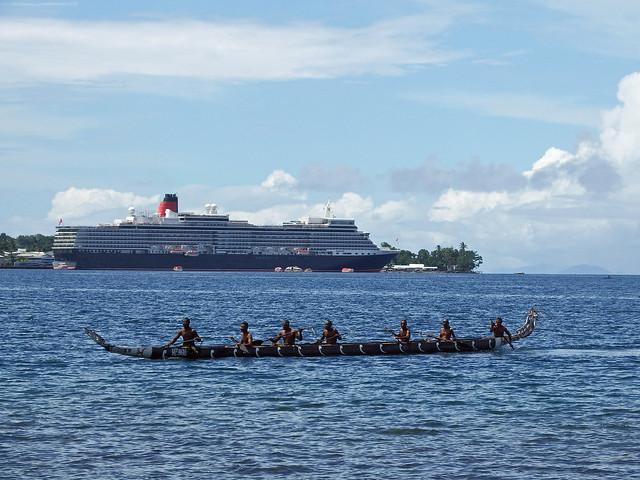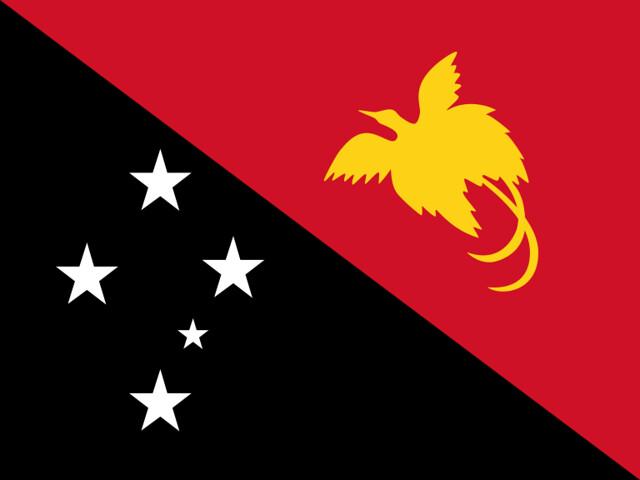Daru
Overview
Location and Atmosphere
Daru City, the capital of the Western Province of Papua New Guinea, is situated on Daru Island, just off the southwestern tip of the mainland. The city is surrounded by the Arafura Sea and is characterized by its tropical climate, which brings warm temperatures and occasional rainfall. This coastal setting offers stunning ocean views and a laid-back island atmosphere that contrasts with the bustling urban life many travelers are accustomed to. The charm of Daru lies in its simplicity; it provides a glimpse into a slower pace of life where the natural environment plays a significant role in daily activities.
Culture and People
Daru is a melting pot of cultures, influenced by the various indigenous groups of Papua New Guinea as well as settlers from other regions. The local population is predominantly made up of the Melanesian people, who have rich traditions and customs. Visitors can experience vibrant cultural expressions through traditional music, dance, and art. The annual festivals often showcase the rich heritage of the area, where locals don colorful attire and perform traditional dances, inviting travelers to join in the celebration.
The people of Daru are known for their warmth and hospitality, embodying the spirit of “Wantok” culture, where community and support for each other are paramount. Engaging with locals can lead to meaningful exchanges, providing insights into their daily lives and the challenges they face in this remote part of the world.
Historical Significance
Daru holds historical importance as a trading hub due to its strategic location between Australia and Papua New Guinea. Established during the colonial era, the city has remnants of its colonial past, including old buildings that tell stories of its development. The city also played a role during World War II, serving as a base for military operations. Exploring these historical sites can provide travelers with a deeper understanding of the region's past and its evolution over time.
Additionally, Daru is known for its unique governance system, which reflects the traditional land ownership and clan structures of the indigenous population. This system plays a critical role in community decision-making and the preservation of cultural practices, making it a fascinating aspect for those interested in sociology and anthropology.
Local Characteristics and Attractions
One of the most striking features of Daru is its natural beauty, with lush mangroves and pristine beaches offering a perfect backdrop for relaxation and exploration. The surrounding waters are teeming with marine life, making it an ideal spot for snorkeling and fishing enthusiasts. Local markets are vibrant and filled with fresh produce, seafood, and handcrafted items, providing an authentic shopping experience that supports local artisans.
The Daru Wildlife Sanctuary is a must-visit for nature lovers. This protected area is home to various bird species and other wildlife, offering opportunities for birdwatching and eco-tourism. The sanctuary serves as a reminder of the biodiversity that exists in this remote part of the world, emphasizing the importance of conservation.
Culinary experiences in Daru also reflect the local culture, with seafood being a highlight. Enjoying freshly caught fish or trying traditional dishes made from cassava and taro can be a delightful aspect of your adventure. The casual dining atmosphere allows for a relaxed meal while soaking in the island's ambiance.
In summary, Daru City presents a unique blend of cultural richness, historical depth, and natural beauty, making it an intriguing destination for travelers seeking to explore the lesser-known parts of Papua New Guinea. The city’s welcoming spirit, coupled with its picturesque surroundings, ensures that visitors leave with unforgettable memories and a deeper appreciation for the island's heritage.
Other towns or cities you may like in Papua New Guinea
Explore other cities that share similar charm and attractions.





